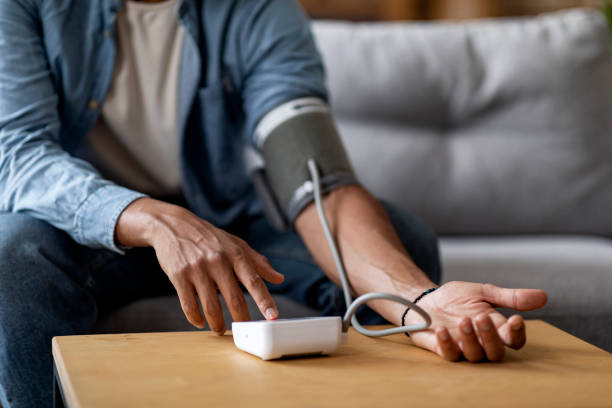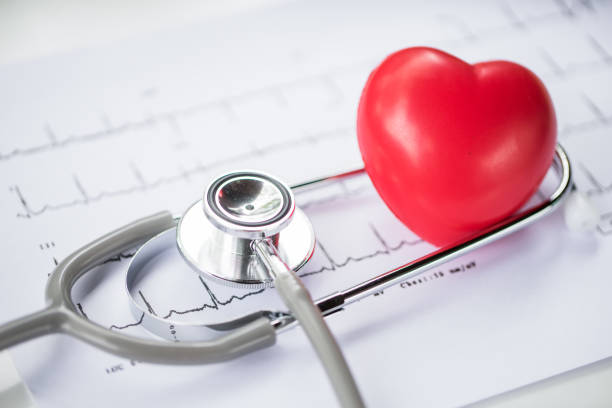Hypertension, commonly known as high blood pressure, is a prevalent condition that can lead to severe health issues if left untreated. Despite its dangerous potential, it often remains unnoticed due to its lack of obvious symptoms. Here’s what you need to know to keep your blood pressure in check and protect your health.
What is Hypertension?
Hypertension occurs when the force of blood against the artery walls is consistently too high. This elevated pressure can cause damage to the blood vessels and vital organs, leading to serious health problems such as heart disease, stroke, and kidney disease.
Recognizing the Symptoms
Hypertension is often called the “silent killer” because it typically has no noticeable symptoms until significant damage has occurred. This makes regular monitoring of blood pressure essential for early detection and management.
Key Symptoms to Be Aware Of
While most people with hypertension have no symptoms, in some cases, individuals may experience:
- Headaches: Severe headaches can occasionally be a sign of extremely high blood pressure.
- Shortness of Breath: Difficulty breathing might indicate that hypertension has affected the heart or lungs.
- Nosebleeds: Frequent nosebleeds can be a symptom of uncontrolled high blood pressure.
- Flushing: A sudden redness of the face or body may occur in some people.
Risk Factors

Several factors can increase the risk of developing hypertension:
- Age: The risk increases as you get older.
- Family History: Genetics can play a significant role in developing hypertension.
- Obesity: Excess body weight can lead to increased blood pressure.
- Lack of Physical Activity: Sedentary lifestyle contributes to the risk.
- High Salt Intake: Consuming too much sodium can raise blood pressure.
- Excessive Alcohol Consumption: Drinking too much alcohol can increase blood pressure.
- Stress: Chronic stress may contribute to high blood pressure.
Management and Prevention
Healthy Diet
- Low-Sodium Diet: Reduce salt intake to help manage blood pressure. Aim for less than 2,300 mg of sodium per day, and ideally, under 1,500 mg.
- Fruits and Vegetables: Incorporate plenty of fruits, vegetables, whole grains, and lean proteins into your diet.
- DASH Diet: The Dietary Approaches to Stop Hypertension (DASH) diet is specifically designed to help manage high blood pressure.
Regular Exercise
- Physical Activity: Engage in at least 30 minutes of moderate-intensity exercise most days of the week. Activities like walking, jogging, cycling, or swimming can be beneficial.
- Strength Training: Include muscle-strengthening activities at least two days a week.
Maintain a Healthy Weight
- Weight Loss: If you’re overweight, losing even a small amount of weight can help reduce blood pressure.
- BMI: Aim for a healthy body mass index (BMI) within the range of 18.5 to 24.9.
Limit Alcohol
- Moderation: If you drink alcohol, do so in moderation. This means up to one drink per day for women and up to two drinks per day for men.
Monitor Blood Pressure
- Regular Checks: Regularly check your blood pressure, either at home or by visiting a healthcare provider.
- Record Readings: Keep a log of your blood pressure readings to track any changes over time.
Stress Management
- Relaxation Techniques: Practice relaxation techniques such as deep breathing, meditation, yoga, or tai chi.
- Mindfulness: Incorporate mindfulness practices into your daily routine to manage stress levels effectively.
When to Seek Medical Advice

If you have risk factors or a family history of hypertension, consult your healthcare provider for advice on managing your blood pressure. Early intervention and lifestyle changes can significantly reduce the risk of complications associated with hypertension.
Warning Signs to Watch For
Seek medical advice if you experience:
- Severe Headaches: Persistent, severe headaches that are unusual for you.
- Vision Changes: Blurred or double vision.
- Chest Pain: Unexplained chest pain or tightness.
- Shortness of Breath: Difficulty breathing without a clear cause.
- Blood in Urine: Hematuria, which may indicate kidney involvement.
Conclusion
Taking proactive steps to manage hypertension is crucial for protecting your health. By adopting a healthy lifestyle, monitoring your blood pressure regularly, and seeking medical advice when necessary, you can reduce the risk of serious complications. Hypertension may be a silent killer, but with vigilance and care, it can be effectively managed.


